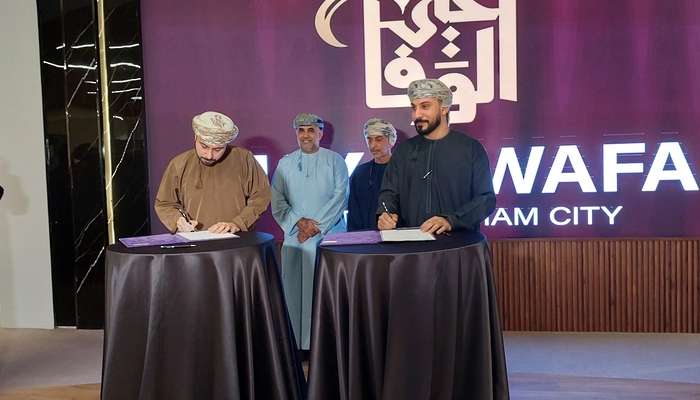
MUSCAT: The inauguration of the initial phase of the Hay Al Wafa project, valued at OMR280 million, took place on Sunday evening at the Panorama Mall in Sultan Haitham City.
Developed by Al Abrar Real Estate, this expansive project spans one million square metres and will comprise a total of 1,800 residential units. The first phase, featuring 375 units, is projected for completion by 2026.
Dr. Khalfan bin Saeed Al Shuaili, Minister of Housing and Urban Planning, presided over the launch ceremony, accompanied by Salim bin Ali Al Siyabi, Chairman of the Board of Directors of Al Abrar Real Estate, a subsidiary of Al Siyabi International Group.
The inaugural phase of the Al Wafa neighbourhood encompasses a variety of apartment and villa designs, catering to different preferences. By 2026, alongside the residential units, infrastructure including roads, utilities, and lighting will also be finalised.
Al Siyabi expressed optimism about the project's success, emphasising the competitive pricing strategy aimed at both Omani nationals and expatriates.
He said, "Commencement of construction is imminent pending final approvals from relevant authorities. We have begun the mobilisation of the first phase. Prices for apartments begin at OMR27,800, while basic three-bedroom villas/townhouses are priced at OMR65,000. Non-eligible Omanis and foreign nationals can expect starting prices from OMR101,000."
Al Siyabi added: “I am confident in the success of the project. I am excited about the project as I love to take challenges. To start a new project is a challenge and I am looking forward to it.”
The comprehensive development plan for the Sultan Haitham City, covering approximately 14.8 million square meters, is designed to accommodate 100,000 residents across 19 integrated neighborhoods.
Scheduled for completion in phases by 2030, this project aligns with Oman's evolving real estate landscape, catering to population growth and bolstering its appeal as a secure haven for both residents and investors, locally and globally. The city's construction will unfold across four phases, slated for implementation from the current year until 2045.